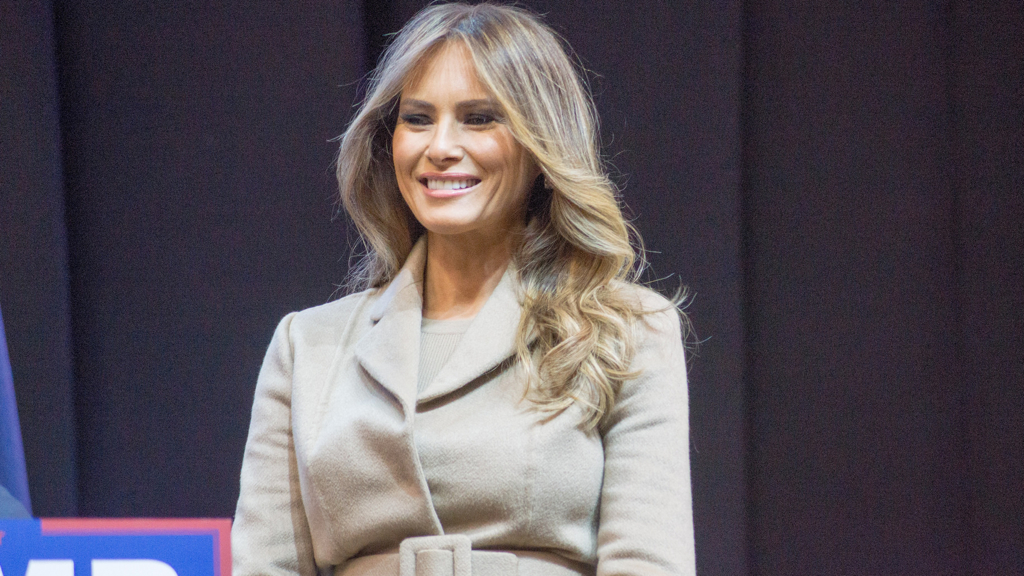Melania Trump says in an interview with DuJour magazine that Julia Ioffe “provoked” her husband’s supporters into a barrage of anti-Semitic outbursts by investigating the potential future first lady’s family history for a profile Ioffe published in GQ last month.
In the 24 hours after Ioffe’s Melania Trump story went online, the journalist was set upon by Trump supporters, who unleashed a wave of anti-Semitic and sometimes violent responses on social media, in blog posts, and over the phone. She got an anonymous call from someone who played an Adolf Hitler speech and was the subject of tweets that included death threats and photos of her manipulated into images of Holocaust victims. Ioffe has filed a report with the DC Police Department.
“I don’t control my fans,” Trump says about the reaction. “But I don’t agree with what they’re doing. I understand what you mean, but there are people out there who maybe went too far. She provoked them.”
“The irony of this is that today, when I was getting all of this horrible antisemitic shit that I’ve only ever seen in Russia, I was reminded that 26 years ago today my family came to the US from Russia,” Ioffe told the Guardian.
Mickey Rapkin takes a decidedly softer lens toward Melania Trump in his profile, which anchors DuJour‘s summer issue. The story takes place at the Trumps’ three-floor penthouse in New York, and rehashes many of the same chapters in Trump’s life that Ioffe covered: her childhood in Slovenia, her modeling career, and her eventual relationship with Donald Trump.
But Rapkin also gives Melania Trump a chance to sound off on Ioffe’s revelation that the former Melania Knauss’s father has a 50-year-old son that he’s never acknowledged and who she’s never met. Trump’s half-brother, while not quoted in Ioffe’s article, still tells his story of estrangement through her reading of Slovenian court documents. In Rapkin’s story, Trump takes issue with Ioffe’s digging.
“It doesn’t bother me if they write about me because I know who I am,” Trump tells Rapkin. “But what right does the reporter have to go and dig in court in Slovenia in 1960 about my parents? … But to do that, it’s a little bit nasty, it’s a little bit mean.”
Elsewhere in the story, Melania Trump defends her husband, who has attracted notable levels of support from white supremacists, including former Ku Klux Klan leader David Duke and the white-nationalist website Daily Stormer, which endorsed him last July. “He’s not Hitler,” Melania Trump tells DuJour. “He wants to help America. He wants to unite people.”
Donald Trump may not be Hitler, but it’s impossible to ignore the revanchist overtones that have defined his campaign and its supporters. The vein of backlash Ioffe has received originated from the internet’s fringes, and yet it has a way of filtering into the mainstream. On Sunday, Breitbart—a site that has been effectively co-opted by the Trump campaign—published an opinion piece under the headline “Bill Kristol: Renegade Spoiler, Renegade Jew” that blasted the Weekly Standard editor for trying to draft another Republican to run as a independent against Trump and the Democratic Party’s candidate. As Slate’s Michelle Goldberg wrote, “There used to be a great gap between the sort of everyday reaction on display at Breitbart and the internet’s nakedly white supremacist outposts.”
During his White House run, Donald Trump has suggested he would like to “open up” federal libel laws in order to make it easier to sue reporters who publish unflattering profiles of him. From her comments in DuJour, it sounds as though Melania agrees.



















